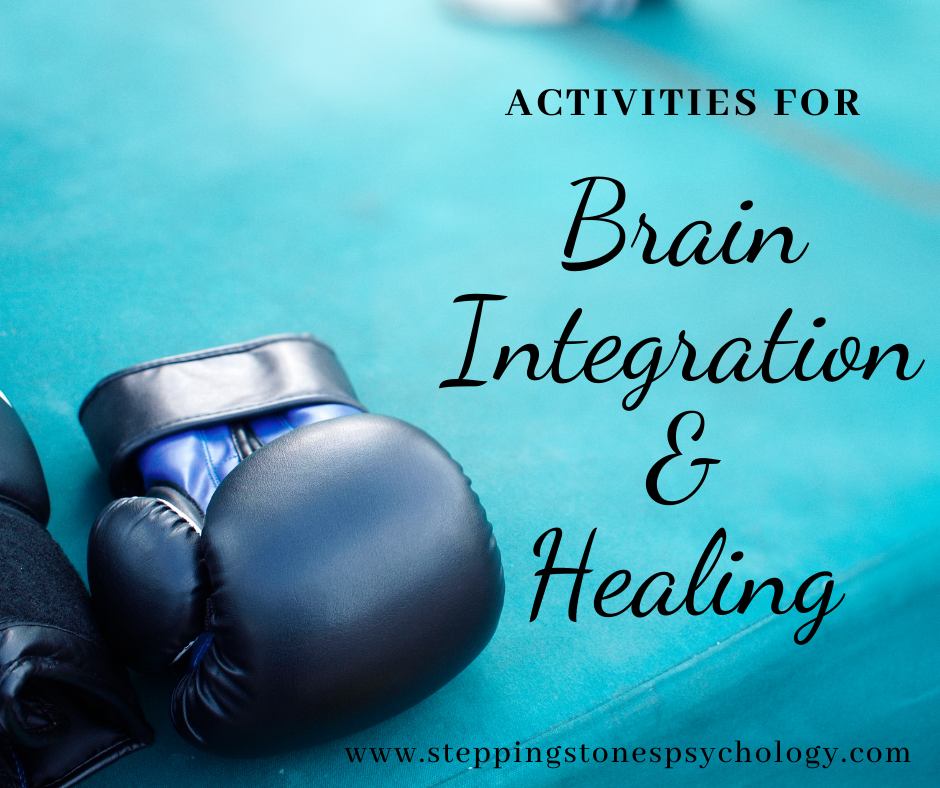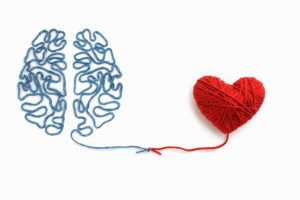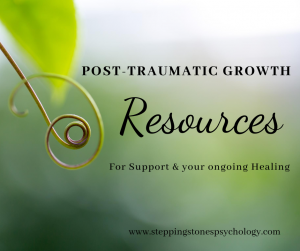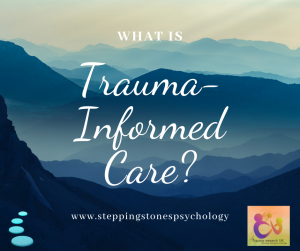I often talk about an element of EMDR (a type of trauma therapy) called Bilateral Stimulation (BSL) and how it plays a role in understanding brain integration, plasticity, and resilience. BSL is a core treatment element of EMDR and a process which distinguishes EMDR from any other method. We have two hemispheres of the brain and that there are different roles played by different sides and areas of the brain. We know that integrating neural networks appears to be helpful in resolving traumatic memories, which BSL facilitates. BSL also has the powerful component to it when it comes to processing and regulating our emotions.
Boxing, walking, drumming and anything else where you use the left side versus the right side of your body alternatively (one at a time) involves BSL. Whenever you engage in activities that involve BSL, for example, walking, running and drumming, you are actually helping your brain with its brain integration. It doesn’t have to be walking, running or drumming, but any activity where you use your body in a rhythmic way where it involves using your right and left brain alternatively throughout the activity. This is also sometimes called alternate right- and left-brain activation. There are so many ways you can achieve this. For example, through tai chi movements, boxing, dance and yoga.
BLS has some great benefits when it comes to mental health, emotional wellbeing and healing. There is still on-going research into learning more about this process, however, so far it has been found that it has the following five main benefits:
- Worries and anxieties can decrease
- Attentional flexibility can increase. This means that your thoughts become less ‘stuck’ on whatever was bothering you
- Distancing effect. This means that the problem seems smaller and further away
- A relaxation effect and this includes including generally feeling calmer and emotionally more regulated
- In addition to this, we know from EMDR that on top of helping process emotions, BSL can also help developing or to strengthening positive memories, experience, thoughts, and feelings. In EMDR and related trauma therapy models, this is called ‘resourcing’
You probably have gone on a hike or run and felt that you were sorting through your thoughts, or developing new insights, or becoming less distressed about something? This is the positive effects of BSL and using it as a resource.
Now the wonderful thing is that there is a boxing group in Sheffield (in the UK), called Mental Mate, dedicated specifically to provide support to those struggling with their mental health and emotional well-being. Mental Mate, found by Daniel Barton, at its essence, is a boxing class, during and after which participants are encouraged to discuss their mental health; their worries, anxieties and problems. It is open to anyone and such an innovative idea to support people with mental health or emotional difficulties to have a safe place for support and forming a community. You can find out more about Mental Mate here: https://uosjournalism.shorthandstories.com/sheffield-fighting-for-mental-health/index.html
Boxing has its own set of benefits in addition to the benefits of BSL. For example, it is an excellent resource for anger management and stress relief. It doesn’t only build physical strength, but also self-confidence. This can particularly be helpful if you grew up in a home or were in a relationship where you were made to feel small and scared.
Although, neuroscience is an ever-evolving field of science with new-found evidence, the use of BSL has existed for many many years by our ancestors. For example, it seems apparent that people all around the world have naturally gravitated toward right-left movements in many healing rituals. For examples, pilgrims on foot, or other sacred rituals that may involve drumming, dancing or movements.
NOW WHAT?
- If you live in Sheffield, South Yorkshire, England (or nearby), perhaps look into attending a session with Mental Mate as it is low-cost, supports BSL engagement and also generally promoting a space to chat about mental health-related issues. Classes take place on Sundays at 11am-12pm at 2 Joiner Street, Sheffield S3 8GW. £3 per session with profits going back to mental health charities. Email: matemental@outlook.com Website: http://www.mentalmate.co.uk/ Facebook: https://www.facebook.com/Matemental/
- Perhaps reflect on an activity you already do that that engages your right and left brain in an alternating rhythm. Notice how you feel before, during and after engaging in the activity. You can ask yourself …How can you incorporate this information into your healing path? Can you do more of it? Are there any other activities you could add to your ‘resource toolkit’?
- If you are looking to heal from specific traumatic memories, you could perhaps look into working with a trauma therapist if this is something you feel ready to do.
© Sharmi Gowri-Kriszyk under Stepping Stones Psychology 2020




